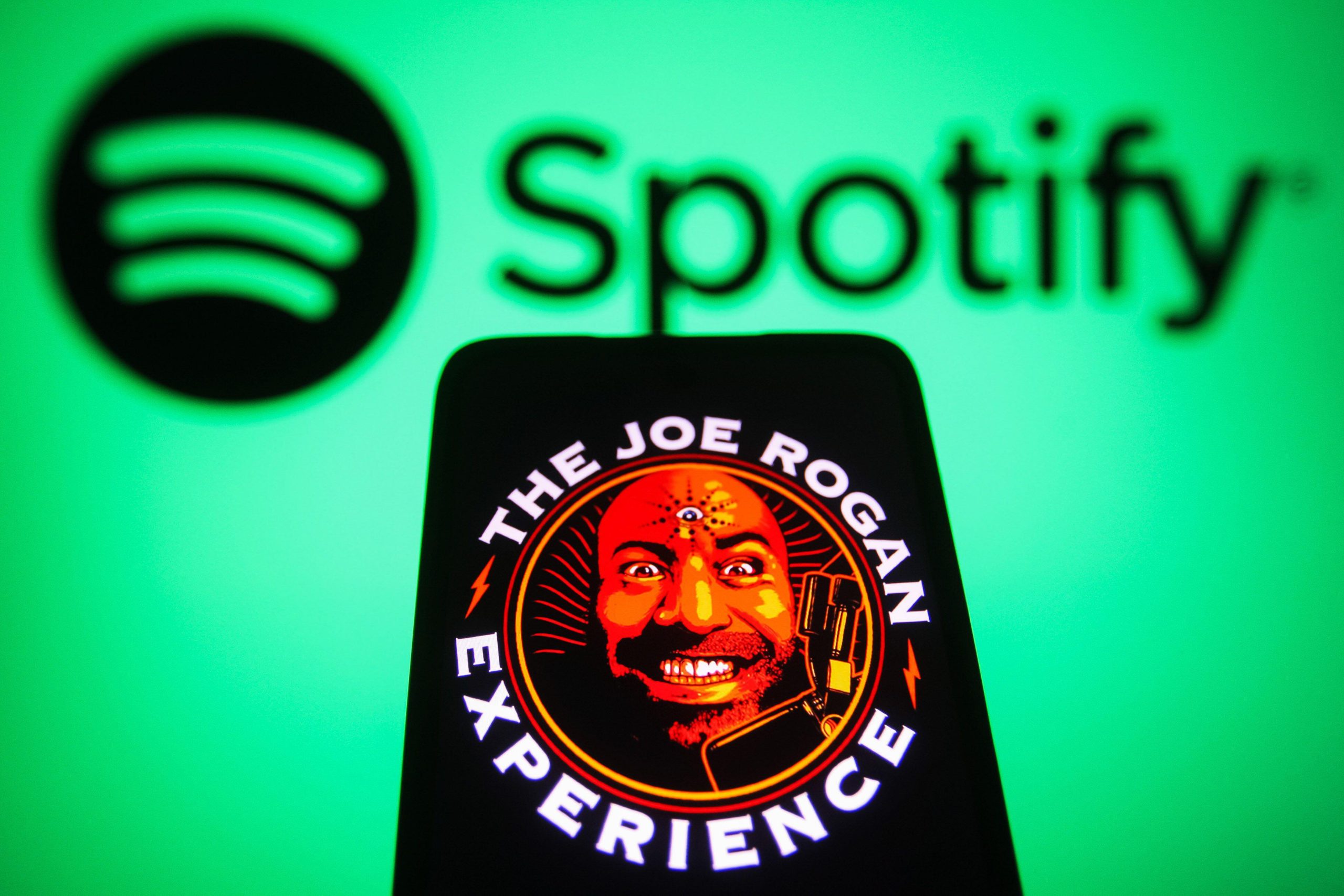It’s difficult to see the multi-millionaire US podcast host Joe Rogan as the victim of censorship. This month, Forbes reported that he had been offered $100m to switch allegiance from the music streamer Spotify to the right-wing free-speech platform Rumble. To his fans, part of the attraction of this former wrestling commentator is that he represents the American everyman, a fearless straight talker in opposition to the mainstream media.
The reality is that, with 11 million listeners, Rogan far outstrips the audience of the established media. Even the most popular TV news hosts cannot dream of such figures: Tucker Carlson, Fox News’s most popular anchor, averages a mere 3.2 million viewers while Jake Tapper of the liberal network CNN struggles to hit viewing figures of one million.
But there is a free expression issue here. When singer-songwriters Neil Young and Joni Mitchell objected to Rogan including misinformation about the Covid vaccine, they could have simply decided to remove their music from the platform. This would have been consistent with the tradition of the protest singer, from which they both come. The problem was that they appeared to make this an ultimatum, asking Spotify to choose between them and the podcaster.
As a commercial decision this was no contest. But in terms of the free circulation of ideas in a free society, it is more problematic. Wherever possible, we should allow the most uncomfortable debates to take place in the largest possible arena. And Rogan’s arena is certainly large.
The intervention of Young and Mitchell was significant precisely because it sparked debate about the limits of free speech. They were not alone in objecting to the views of Dr Robert Malone, a guest who questioned the effectiveness of mask-wearing and likened the mass-vaccination programme to Nazi Germany. Some 270 scientists also wrote to Spotify to demand they address misinformation on Rogan’s show.
Following the row, Spotify is reported to have removed more than 110 episodes of Rogan’s show where they were seen to spread misinformation or guests used racist slurs. This though is not censorship. Removing content is an editorial decision. Young and Mitchell have succeeded where others have failed in forcing a major media platform to recognise its responsibilities as a publisher.
The pandemic has put a huge strain on our instinct for free speech. But the reality is that the debate between sceptics and adherents to government policy has been, for the most part, open and vibrant. The discussion around the Joe Rogan show has resulted in the podcaster committing himself to providing more balance in future and Spotify acknowledging its role in modifying content.
If nothing else, this episode has at least disabused us of the idea that Rogan is an outsider, let alone a dissident. For better or worse he now is the mainstream media.






